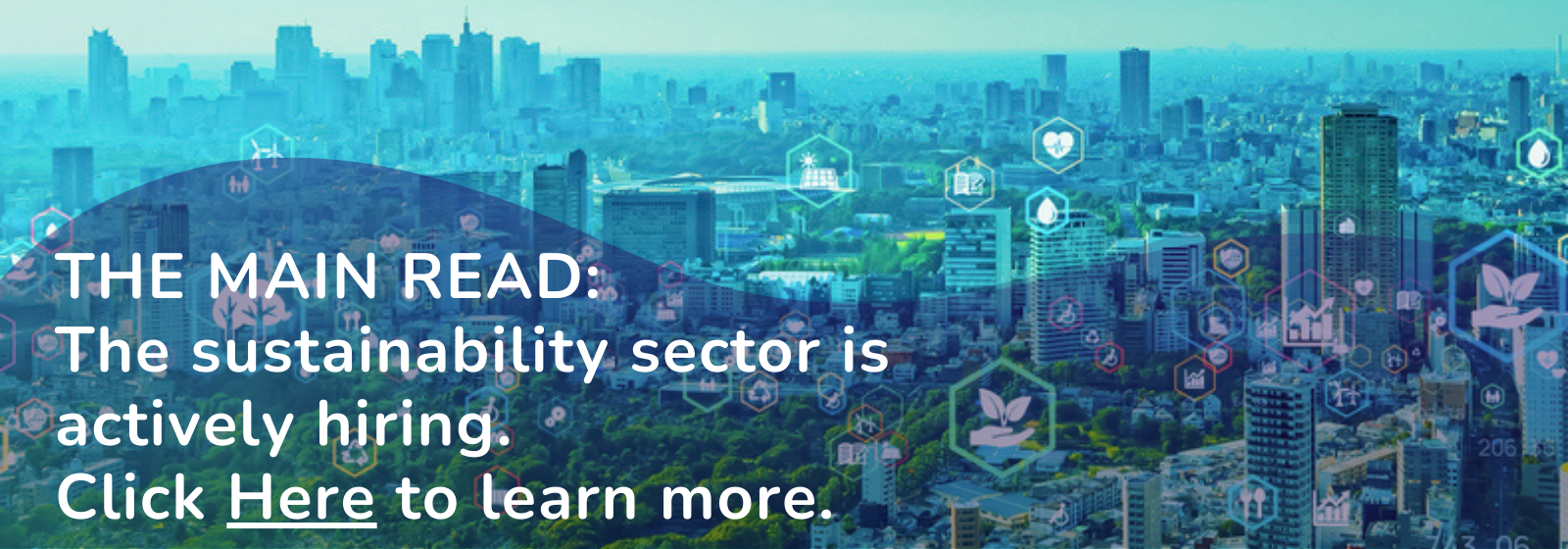Taking action on climate change is no longer just an option, with countless businesses in Singapore and around the globe looking to reduce emissions and play a part in the environmental transformation. The role of sustainability analysts is crucial in this equation, as they help corporations understand their footprint and make recommendations about how to drive change.
Typically working for large-scale organisations, sustainability analysts help deliver improvements from the inside by researching existing practices and identifying better ways to do business. Meanwhile, they plan and implement eco-conscious programmes to create tangible progress, improve customer relations and abide by government regulations.
Top companies are now hiring for sustainability jobs! Discover opportunities in the sector here.
What does a sustainability analyst do?
As we delve deeper into the everyday role of sustainability analysts, one of the most fundamental tasks involves the assessment of business practices. By reviewing your organisation’s sustainability performance, including factors like waste materials, energy usage and greenhouse emissions, this data is used to plan out the company’s next steps.
For example, this analysis might highlight how a relatively simple change to business practices vastly reduces the plastic waste created. The adoption of new technology can help track where the business generates unnecessary pollution. Each of these recommendations falls under the remit of sustainability analysts.
Once strategies have been identified and implemented, sustainability analysts will monitor and report progress. Throughout this process, further changes can be considered to improve results. Finally, sustainability analysts are responsible for conveying these shifts to employees and other stakeholders.
What skills and qualifications do sustainability analysts need?
Ready to start your journey to becoming a sustainability analyst? First, you will need a bachelor’s degree in a relevant field, such as sustainability, environmental science, engineering, business or economics. The following skills will also put your career on the path to success.
Data analysis
As you might expect, data analysis is an essential skill for this role. As you’ll need to conduct thorough research into how the business impacts the environment, knowing how to collect this data and draw meaningful insights from it ensures you become a valuable resource for your organisation.
Communication
Not everyone in the business will have the same technical understanding as you. This means you need outstanding communication skills to convey your findings to stakeholders ranging from engineers to marketers. This way, anybody involved in driving more sustainable outcomes understands your work.
Project management
Sustainability analysts not only make recommendations about what a business should do to reduce its emissions, but also carry out suggestions. As some projects can take months or years to implement, refined project management skills are vital for top performance.

What industries require sustainability analysts?
Sustainability analysts have excellent career prospects, as most industries need to take action on their environmental impact. From the manufacturing sector to construction and finance, the green economy will only grow stronger in the years ahead.
Manufacturing
As customers and government regulators pay close attention to the emissions of manufacturing operations, sustainability analysts are in high demand. By identifying economically feasible changes that reduce waste and greenhouse gases, you can help a business revolutionise how it produces its products.
Energy
The energy sector is an obvious choice for big polluters, but many of the world’s leading organisations are taking significant strides to reduce their emissions. Sustainability analysts can find work in these massive companies, helping them develop technology that limits emissions while implementing eco-conscious business practices.
Finance
Sustainability analytics can work from a different perspective in the financial sector. As banks and other financial institutions look to invest in forward-thinking sustainable operations, this role can provide crucial analysis of potential candidates, and develop long-term strategies that encourage environmentally-friendly practices.
How can budding sustainability analysts gain practical experience?
There are numerous opportunities for new sustainability analysts to gain practical experience before they enter the workforce. Here are two avenues to consider as you work towards a fruitful sustainability career.
Internships
If you’ve already started your studies in a relevant field, you can level up your progress with a productive internship at a local organisation. Here, you might shadow a fully qualified sustainability analyst or be given responsibilities that see you make small suggestions about areas for improvement.
Volunteer work
You can boost your career prospects with meaningful volunteer work in a related area. For example, you might work with a non-profit or community organisation looking to reduce its impact on the natural world. Alongside a stellar reference, this work can provide the practical experience you need to land your first job.















